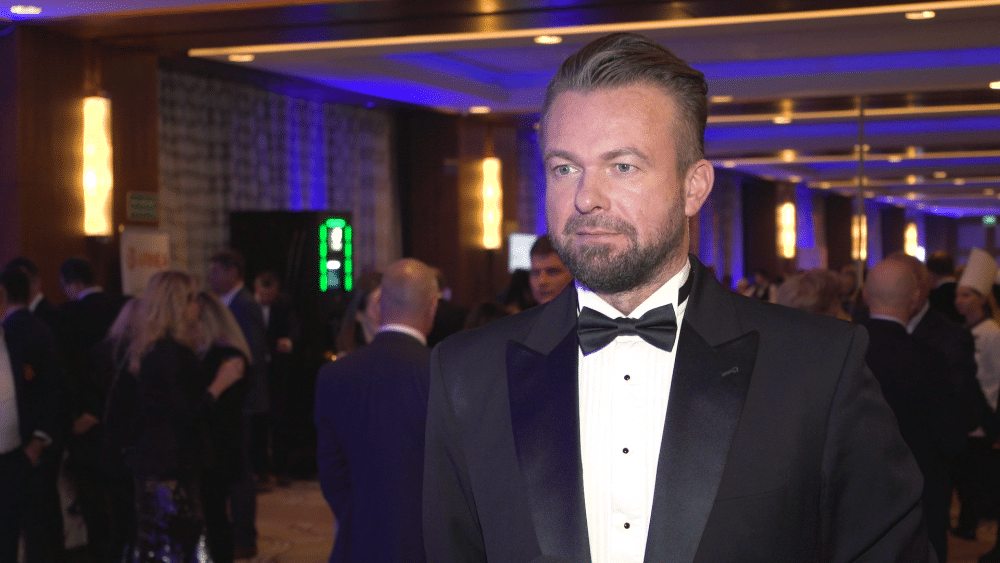“I have the impression that for now, the new government is more concerned with regaining the state rather than supporting entrepreneurship. However, we are aware of their declarations and the planned reforms, such as the ZUS holiday, are extremely important for Polish entrepreneurs,” says Bogusław Chrabota, editor-in-chief of “Rzeczpospolita”. Entrepreneurs have many expectations from the coalition government, but one of the most important is the restoration of a climate of economic freedom and the stability of doing business. “We would primarily appreciate being treated as those who shape the economy in this country and have a big influence on what happens in other sectors of life,” says Jarosław Grzywiński from BCC. January business sentiment indicators show greater optimism, despite numerous challenges, and not just economic ones.
“By 2024, we will still be dealing with a fairly difficult geopolitical situation, as we have, among other things, conflict between Russia-Ukraine, issues related to the situation in Israel, or elections in the United States. These are certain macroeconomic uncertainties. However, in Poland, we would above all count on the loosening of fiscal policy and treating entrepreneurs as those who shape the economy in this country and have a big influence on what happens in other sectors of life,” says Jarosław Grzywiński, market leader in the Business Centre Club, to the Newseria Biznes agency.
The tense geopolitical situation remains one of the risk factors for the Polish economy in the coming months. The previous year ended with only a 0.2% growth in GDP, as prelimary GUS data shows, compared to 5.3% growth in 2022. This marked slowdown results partly from the decrease in consumer demand in response to raised inflation. Credit Agricole analysts estimate that this year the average annual GDP growth rate will be 2.8%, and 3.5% in 2025. A loosening of monetary policy is expected this year, which could slow down the decline in inflation and accelerate the GDP growth rate. According to analysts, there is room to cut interest rates in 2024, especially in light of expected cuts from the Fed and EBC as well, but it will be rather marginal. Inflation is forecasted to approach the NBP target, but it will only reach it by 2025 or 2026 (as of the end of 2023, CPI inflation was 6.2% and average annual inflation was 11.4%). Uncertainty remains, among other things, due to the shape of the new government’s fiscal policy.
“I get the impression that we’re only halfway through the fight against inflation. If all processes are well organized, the end of 2025 could be the end of inflationary increases,” said Jarosław Grzywiński during the BCC Polish Business Leaders Gala. “I also hope that the action taken by the new government administration will not be pro-inflationary. This policy should be thoughtful, multi-sectoral, and all ministries should create a united front in the fight against inflation.”
Inflation and high financing costs, as well as increased labor costs and a shortage of labor, as well as legal and tax instability, caused among other things by the reform of the Polish Deal – these are just a few of the barriers that currently hinder economic activity, especially for micro-, small and medium businesses. Despite this, the mood in this segment of entrepreneurs is improving. The January reading of the EFL Barometer was 52.5 points, 2.1 points higher than in the fourth quarter of 2023, and 4 points higher than a year ago. This indicator has been increasing for three quarters and hasn’t been this high in six years.
Business optimism is being inspired by, among other things, the gradual warming of relations with the European Union, which increases the possibility of EU funds flowing into Poland, and the new government’s announcements of making things easier for entrepreneurs and eliminating the effects of the Polish Deal.
“I have the impression that for now, the new government is more concerned with regaining the state rather than supporting entrepreneurship. But we know their declarations, we know Prime Minister Donald Tusk’s exposé and the planned reforms, such as the so-called ZUS holidays. Not all are pleased with these, but for the grassroots – the lowest groups of Polish entrepreneurs, who really create the entrepreneurial climate – they are extremely important. I also think that reforms in the area of justice will ultimately benefit entrepreneurship. However, I am waiting for something more: the completion of the climate of economic freedom, more freedom, more security, more room for Polish entrepreneurship. The Polish Deal destroyed this, now it needs to be restored, and I have the impression that this government knows about it,” says Bogusław Chrabota, editor-in-chief of “Rzeczpospolita”.
Unblocking funds from the KPO, vacatio legis for changes in tax laws, returning to dialogue between the government and business, replacing the Polish Deal with a new, clear and stable tax system – this is only the beginning of a long list of Expectations from entrepreneurs towards the coalition government. However, satisfying them will not be easy, especially since the new government inherited not only a state budget in poor condition from eight years of the United Right’s reign, but also a legislative chaos and a long list of planned, large projects that require an audit and settlement.
“We must reconcile with the past eight years of Law and Justice rule, during which significant long-term decisions were made, like the construction of the CPK. While an audit of these projects and their adaptation to current circumstances is certainly necessary, achieving this won’t be easy, given the evolving situation and geopolitical changes. The new government will need to carefully consider these factors. However, I strongly oppose the notion of creating Polish chaebols, large economic conglomerates, that would thrive at the expense of other businesses. This approach needs to be reversed. Small and medium-sized enterprises are the heart of our economy: they generate ideas, capital, and imbue the Polish economy with its unique character. This is where we must invest,” says Bogusław Chrabota.
